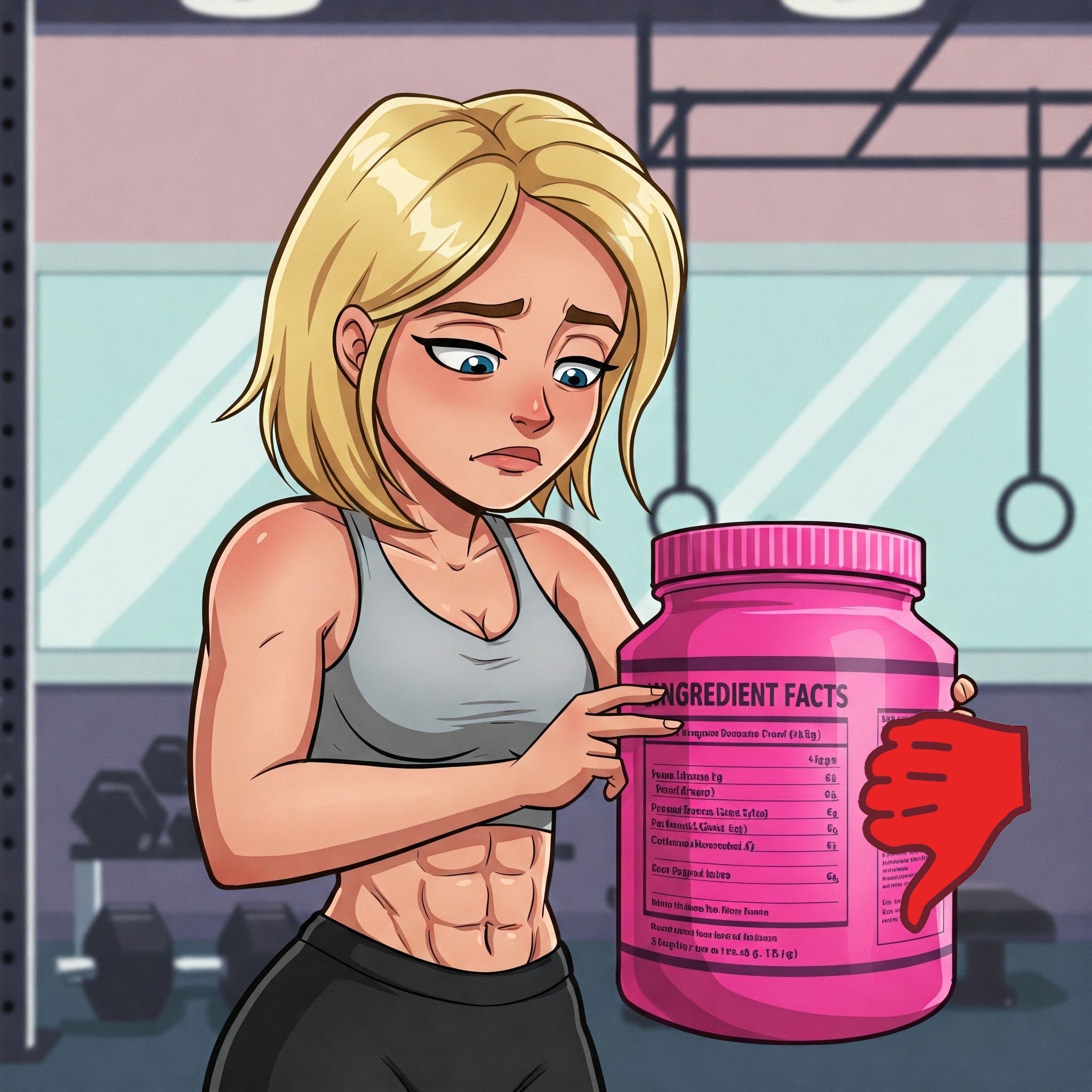In the world of dietary supplements, “For Her” products often dominate the shelves. With pink labels, flowery branding, and marketing slogans that appeal to femininity, these products seem tailored to women’s unique needs. However, a deeper look reveals an unsettling truth: most “For Her” supplements are unnecessary, overpriced, and underdosed.
Here at The Nutrition Store, we prioritize transparency and science, which is why we don’t stock “For Her” products. Let’s explore the facts behind this decision and the scientific evidence that backs it up.

1. Overpriced Products With Minimal Difference
One of the biggest red flags with “For Her” supplements is the inflated cost. Studies have consistently shown that gendered products, from razors to vitamins, are often marketed at a higher price point for women despite minimal differences in ingredients or efficacy. This phenomenon, known as the “pink tax,” extends to dietary supplements as well.
For example, research published in Health Affairs (2015) analyzed price discrepancies in consumer goods, showing that products marketed to women were, on average, 7% more expensive than similar items for men. This pricing strategy often carries over into the supplement industry, with little justification beyond marketing.
2. Underdosed and Ineffective
Another issue with “For Her” supplements is the dosing. Manufacturers often assume women need lower amounts of nutrients than men, leading to underdosed products. However, scientific evidence suggests that nutrient needs are highly individual and often unrelated to gender.
According to the National Institutes of Health Dietary Guidelines, the recommended dietary allowance (RDA) for many vitamins and minerals, such as magnesium, vitamin D, and calcium, is nearly identical for men and women in the same age group. The primary differences in nutritional needs are seen in specific life stages, such as pregnancy or menopause, not in day-to-day requirements.
3. Misleading Claims vs. Scientific Evidence
Many “For Her” products claim to be tailored to “the female body,” yet their ingredient profiles rarely differ from standard supplements. Worse, some contain unnecessary additives, such as artificial flavors or fillers, to appeal to perceived feminine preferences.
A study published in Nutrients (2019) highlights the importance of evidence-based dosing for dietary supplements, emphasizing that individual factors—like weight, activity level, and health status—are more important than gender when determining nutrient needs. For example, a pre-workout or multivitamin marketed to women might contain lower doses of active ingredients like creatine or B vitamins, even though these nutrients benefit men and women equally when taken at appropriate doses.
4. What Science Says About Gendered Supplementation
The primary determinant of nutrient requirements is not gender but factors such as:
• Body size and composition: Larger individuals may need higher doses of certain nutrients, regardless of gender.
• Activity level: Athletes or those engaging in regular physical activity have increased needs for nutrients like protein, electrolytes, and vitamins.
• Health goals: Weight loss, muscle gain, or maintenance all impact nutrient needs, which vary significantly within each gender.
For example, a 2020 review in the Journal of the International Society of Sports Nutrition found that creatine supplementation, often excluded from “For Her” products, is equally effective for women and men in improving muscle performance and recovery. Yet, this ingredient is frequently omitted in female-branded pre-workouts due to outdated stereotypes about women and muscle building.
Our Commitment to You
At The Nutrition Store, we don’t believe in selling overpriced, underdosed, or misleading products. Instead, we focus on supplements backed by science, ensuring you get the nutrients you need at doses that work. Our philosophy is simple: your health and wellness shouldn’t be dictated by marketing gimmicks.
When choosing supplements, always look for transparency, quality, and scientific support—not flashy labels or gendered branding. The truth is, your body needs what works, and that’s what we provide.
Sources for Further Reading
1. Taylor, C., & Helpern, M. (2015). The Pink Tax: Disparities in Pricing of Goods for Women. Health Affairs, 34(5), 779-787.
2. National Institutes of Health. (2020). Dietary Guidelines for Americans 2020-2025. U.S. Department of Health and Human Services.
3. Kreider, R. B., et al. (2020). International Society of Sports Nutrition Position Stand: Safety and Efficacy of Creatine Supplementation in Exercise, Sport, and Medicine. Journal of the International Society of Sports Nutrition, 17(1), 1-18.
4. Schwingshackl, L., et al. (2019). Dietary Supplements: Evidence-Based Recommendations for Use in Adults. Nutrients, 11(5), 1097.
By prioritizing education and science, we empower you to make informed decisions about your health. Visit us today to find supplements that work—no matter who you are!







